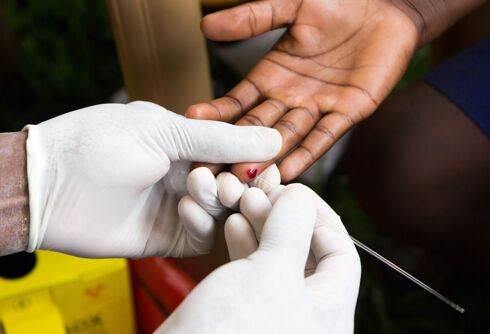
“Lesbian Seagull” is a song that has intrigued and entertained listeners for decades. Originally written by Tom Wilson Weinberg and later popularized by Engelbert Humperdinck, the song has a unique backstory tied to scientific discoveries and LGBTQ+ representation.
Let’s explore the past, impact, and significance of “Lesbian Seagull,” especially among queer music lovers.
Related:
Can animals be gay? Same-sex behavior is natural
Same-sex behaviors have been observed in over 1,500 animal species. It’s both fascinating and surprisingly controversial.
Never Miss a Beat
Subscribe to our newsletter to stay ahead of the latest LGBTQ+ political news and insights.
Origins of the song
The song “Lesbian Seagull” was first written and recorded by influential out gay Australian-born musician Tom Wilson Weinberg in 1979 for his album The Gay Name Game. He was about 34 years old at the time of the album’s release and he had previously performed his original queer-themed songs in coffeehouses and gay pride events during the late 1970s.
Weinberg’s song was inspired by a 1977 study that observed monogamous lesbian behavior in 14% of the seagulls on Santa Barbara Island. The song gained further popularity when it was mocked in the 1996 animated MTV film Beavis and Butt-Head Do America.
In the film, a hippie educator sings the song with a guitar to help high school students process their emotions. The song’s gentle instrumentation and sensitive lyrics contrast with scenes of rifle-wielding policemen busting down doors while trying to locate the film’s titular anti-heroes. The song ends when police kick down the classroom door, knocking over the educator, who has long-hair, socks with sandals, and a purple shirt bearing a peace symbol.
British singer Engelbert Humperdink performed a version of the song for the film’s soundtrack. While Weinberg was initially pleased to have his song featured in the film, he objected to the addition of sound effects depicting a gunshot at the end, which he felt was homophobic.
“It burst my bubble,” Weinberg told The Chicago Tribune. “I knew that Beavis and Butt-head were about bad taste, and I expected them to gag and wretch over it — it’s a schmaltzy love song —but I never expected a gunshot. You just can’t put gay and lesbian imagery with a gunshot. Violence against gay people is real. The highest percentage of hate crimes are perpetrated against gays.”
After Weinberg raised concerns, Paramount Pictures, Geffen Records, and MTV agreed to remove the gunshot sound effect from subsequent releases of the soundtrack and film.
Scientific discovery
The scientific basis for the song comes from the work of George and Molly Hunt, a pair of married scientists who, in the early 1970s, discovered female-female pairs of seagulls nesting together and raising young on a small island off Santa Barbara, California.
This discovery was groundbreaking as it was one of the first documented cases of homosexual behavior in wild animals. The Hunts’ findings were published in 1977 and sparked significant controversy, particularly among conservative groups who argued that homosexuality was unnatural and not found in nature. Congress temporarily blocked funding to the National Science Foundation, which had partly funded the Hunts’ research, due to the controversial nature of the findings.

However, the study also received praise and financial support from others nationwide who had observed homosexual behaviors in pets and farm animals. The discovery of lesbian seagulls provided a natural counterargument to religious conservative claims that homosexuality was against nature and not present in the animal kingdom. As such, the study was a significant moment for the LGBTQ+ community, as it provided scientific evidence that same-sex relationships are a natural occurrence.
Lyrics and themes
The lyrics of “Lesbian Seagull” celebrate the independent and free spirit of a lesbian seagull as well as the love and companionship of her female mate. The lyrics are alternately written from an observer’s point of view and, later on, her mate’s.
The song begins, “She flies so gracefully over rocks and trees and sand / Soaring over cliffs and gently floating down to land / She proudly lifts her voice to sound her mating call / And soon a mate responds by singing ‘Caw, caw, caw.'” The song’s gentle instrumentation conveys the natural peacefulness, grace, and innocence of her being.
The lyrics near the end of the song go, “Come with me, lesbian seagull / Settle down and rest with me / Fly with me, lesbian seagull / To my little nest by the sea / With me, that’s where you belong with me / I know I can be strong when you’re… you’re with me.” As such, the song also highlights themes of love, partnership, and finding a home together.
As the song gained greater popularity, “Lesbian Seagull” became a symbol of queer representation in nature, a challenge to prevailing notions of the time, and also a gentle anthem of identity and love. The song’s gentle melody and heartfelt lyrics have resonated with many listeners, making it a beloved piece of music within the LGBTQ+ community.
Relevance Today
The relevance of “Lesbian Seagull” extends beyond its initial release. The song has been discussed in various media, including podcasts like You’re Wrong About, where it was featured in an episode exploring queer nature and scientific denial. The song’s mocking inclusion in Beavis and Butt-Head Do America nonetheless introduced it to a broader audience, further cementing its place in pop culture.
“Lesbian Seagull” is more than just a song. Its history, tied to scientific discovery and cultural impact, makes it a significant piece of music for the LGBTQ+ community.
Subscribe to the LGBTQ Nation newsletter to stay updated on the latest news and stories from the LGBTQ+ community.
Don't forget to share:
Good News is your section for queer joy! Subscribe to our newsletter to get the most positive and fun stories from the site delivered to your inbox every weekend. Send us your suggestions for uplifiting and inspiring stories.
Support vital LGBTQ+ journalism
Reader contributions help keep LGBTQ Nation free, so that queer people get the news they need, with stories that mainstream media often leaves out. Can you contribute today?
Cancel anytime · Proudly LGBTQ+ owned and operated















